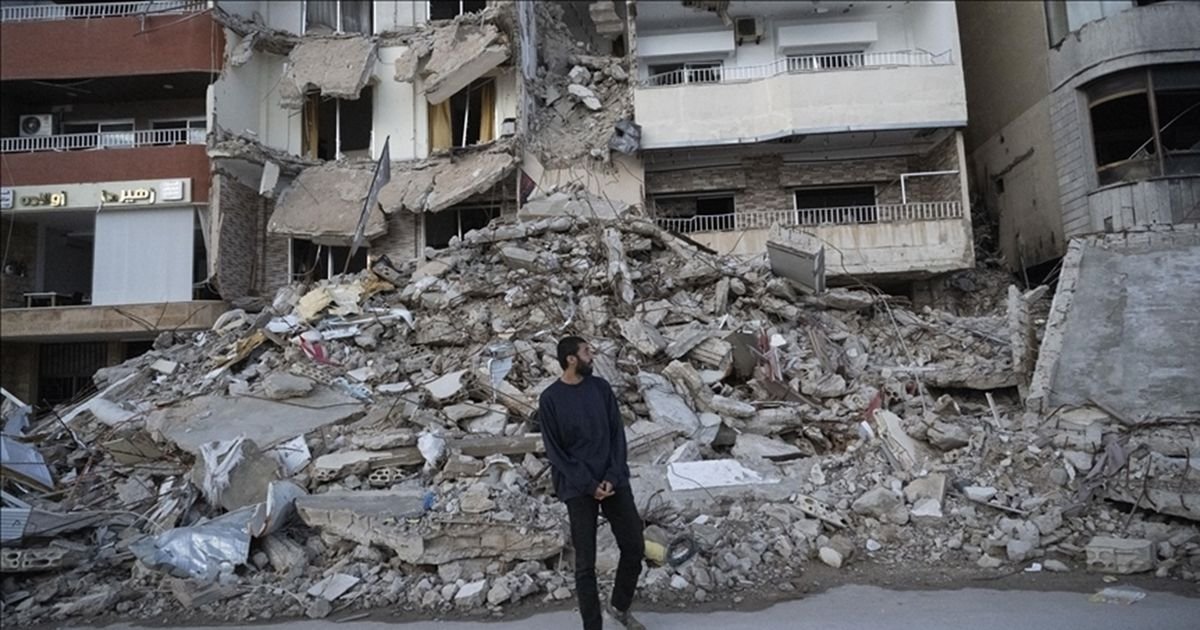
Minister confirmed Economy And trade LebaneseAmin Salam, that Losses The amount that affected the basic sectors in all Lebanese territories as a result of the Israeli aggression ranged between 15 and 20 billion dollars, and that about 500 thousand Lebanese lost their jobs as a result of the displacement of about one and a half million citizens.
Salam said that Lebanese estimates, before the expansion of the Israeli aggression on September 17, indicated losses of about 10 billion dollars in the basic sectors, especially tourism and agriculture, according to an interview he conducted with the Anadolu Agency.
Salam revealed that these losses came according to preliminary estimates, and these numbers may change after the ceasefire and a field survey of the villages and cities of the south, the Bekaa (east), Beirut and its southern suburbs.
Show related news
At dawn on Wednesday, a ceasefire agreement between “Israel” and Hezbollah came into effect, ending mutual bombardment that began on October 8, 2023, and then turned into a wide-scale war in the last two months.
Since the cessation of fighting, displaced people have been flowing massively from various places in Lebanon, returning to their homes in the south, after Israel’s aggression caused the displacement of about 1,400,000 people across the country.
The Israeli aggression against Lebanon resulted in 3,961 martyrs and 16,520 wounded, including a large number of children and women, and most of the victims and displaced persons were recorded after September 23, according to official data.
The Lebanese minister added, “During the aggression, losses increased as the intensity of the bombing increased, and we were not able to complete field surveys at that time, as losses were estimated at hundreds of millions of dollars daily as a result of destruction or disruption of economic activity.”
He pointed out that “after the ceasefire, the most important thing is to reorganize the work of the state, which needs to secure 15 or 20 billion dollars to rebuild the country and its economy, and this requires unprecedented international solidarity and support,” saying that after the “2006 war” the numbers and destruction were much less than the current situation. At that time, several international conferences were held until money flowed into Lebanon for reconstruction and revitalization of the economy.
He added: “Today’s circumstances are different from 2006, because what is required of the international community is to reorganize the country’s institutional work, first and foremost is the election of a president, which is important to reflect confidence in the international community.”
Since the end of former President Michel Aoun’s term in October 2022, the Lebanese Parliament has failed during several sessions to elect a new president due to disagreements between political parties.
The minister stressed “the importance of regular institutional work in the country before holding international conferences to help Lebanon, implementing all international laws, especially 1701, and carrying out a number of economic reforms.”
He pointed out the necessity of “supporting the Lebanese army at this particular stage, especially since it is required to implement UN Resolution 1701, which would strengthen the confidence of the international community, as it needs significant support and funding to carry out its duties.”
Show related news
Regarding the deployment of the Lebanese army in villages and towns to implement the ceasefire agreement, Salam said: “Only hours have passed since the agreement and we noticed a remarkable and positive movement in the deployment of the army in the regions of the south when citizens welcomed it by sprinkling rice on its vehicles in joy at its arrival.”
He added: “Without supporting the army and restoring institutions, we will not be able to reach a result with the international community to support Lebanon because it is now considered that the time has come for Lebanon to be a free and independent sovereign.”
He continued: “In this case, the state extends the authority of the army over all Lebanese territory so that it can negotiate, dialogue, and find a place at the table in the next phase of the deal that will be concluded throughout the Middle East region.”



